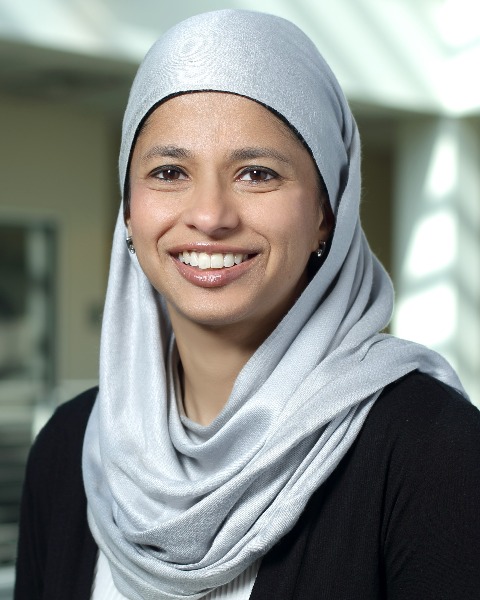Health Sciences
Into the Wild: Embedding a Complex, Home-Based Dementia Care Program Into Diverse Practice Settings
-

Halima Amjad, MD, PhD, MPH (she/her/hers)
Assistant Professor of Medicine
Medicine, Division of Geriatric Medicine and Gerontology
Johns Hopkins University School of Medicine
Baltimore, Maryland, United States -

Quincy Samus, PhD, MS, MS (she/her/hers)
Professor
School of Nursing
Johns Hopkins University
Baltimore, Maryland, United States -

Nancy Hodgson, PhD, RN, FAAN (she/her/hers)
Claire M. Fagin Leadership Professor in Nursing
Department of Biobehavioral Health Science
University of Pennsylvania
Philadelphia, Pennsylvania, United States -

Quincy Samus, PhD, MS, MS (she/her/hers)
Professor
School of Nursing
Johns Hopkins University
Baltimore, Maryland, United States -

Halima Amjad, MD, PhD, MPH (she/her/hers)
Assistant Professor of Medicine
Medicine, Division of Geriatric Medicine and Gerontology
Johns Hopkins University School of Medicine
Baltimore, Maryland, United States -
NS
Noemi Smithroat, BSN, RN, CCM, CMCN (she/her/hers)
Vice President, Clinical Operations
Care Management
Superior HealthPlan
Helotes, Texas, United States -

Elizabeth Ciemins, PhD, MPH, MA (she/her/hers)
Senior Vice President, Research and Analytics
Research and Analytics
American Medical Group Association
Alexandria, Virginia, United States -

Heather Clarke, LCSW, MBA
Director, Care Management
Medical Management
PA Health & Wellness
Pittsburgh, Pennsylvania, United States
Chair(s)
Co-Chair(s)
Discussant(s)
Individual Symposium Abstract First Author(s)
MIND at Home® is a well-researched comprehensive care management program for community-living persons with dementia and cognitive impairment. Developed at Johns Hopkins University, the goal of the program is to provide holistic, family-centered care management by assessing and addressing a broad range of medical, social, and supportive care needs that place people with dementia and their care partners at risk for poor outcomes, institutionalization, and high care costs. Delivered by an interdisciplinary, dementia-proficient team, the program focuses on the home as the nexus of care and consists of specialized assessments, tools, and staff training. Memory Care Coordinators (MCCs) serve as the primary point of contact for program recipients and use a comprehensive needs assessment to develop individualized care plans. MCCs implement and monitor care plans and provide resource referrals, help with navigation and coordination of services and supports, teach problem-solving strategies, and provide dementia education, coaching, and emotional support to care partners. Managed care plans and advanced primary care are well positioned to implement this low-cost, high touch program. This session includes an introduction to the MIND at Home program and features three individual presentations by diverse implementation partners showcasing how the program was adapted and implemented in different health care environments (2 managed care plans-Texas and Pennsylvania; 2 large multispecialty clinics-Iowa and North Carolina). The session will wrap up with a summary of learnings from implementing the program “in the wild”, highlighting partner and stakeholder contributions to the evolution and successful implementation of the program in practice.
Learning Objectives:
- describe the key components of the MIND at Home dementia care model, the characteristics of the care team, core training elements, and summary of research evidence
- describe the experience, lessons learned, and outcomes from adaptation and implementation of the model within managed care organizations and primary care settings
- summarize key cross-cutting learnings about the experience of implementing the model in different settings including key partner and stakeholder contributions to the evolution and successful implementation of the program in practice.
Presentations:
-
10:00 AM - 11:30 AM PSTAn Introduction to the Maximizing Independence at Home (MIND at Home) Program
Individual Symposium Abstract First Author: Quincy M. Samus, PhD, MS, MS (she/her/hers) – Johns Hopkins University
-
10:00 AM - 11:30 AM PSTFlexibility Meets Complexity: Lessons From Practice-Based Implementation of a Dementia Care Model
Individual Symposium Abstract First Author: Halima Amjad, MD, PhD, MPH (she/her/hers) – Johns Hopkins University School of Medicine
-
10:00 AM - 11:30 AM PSTMeeting People Where They Are: Implementation of an Academic Dementia Care Model in a Texas Health Plan
Individual Symposium Abstract First Author: Noemi Smithroat, BSN, RN, CCM, CMCN (she/her/hers) – Superior HealthPlan
-
10:00 AM - 11:30 AM PSTExperiences Embedding MIND at Home Dementia Care Coordination Program in Primary Care
Individual Symposium Abstract First Author: Elizabeth L. Ciemins, PhD, MPH, MA (she/her/hers) – American Medical Group Association
-
10:00 AM - 11:30 AM PSTHeather Bernd Clarke, MBA, LCSW, PA Health & Wellness, Mechanicsburg, PA, United States
Individual Symposium Abstract First Author: Heather Clarke, LCSW, MBA – PA Health & Wellness
